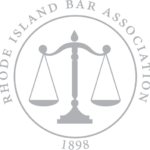Wage Attachment doesn’t happen over night. It is, however, one of the most powerful actions a creditor can take to force repayment of a debt. Other than foreclosure, it is the ultimate “wake-up call” that causes a debtor to explore relief under Rhode Island bankruptcy law. Fortunately, filing a Chapter 7 bankruptcy will stop a wage attachment.
Debt collection usually escalates. A creditor may start with a simple collection letter. But if collection letters won’t work, the next tool is the telephone. The debtor’s phone will ring morning, noon and night in an effort to coerce repayment.
If no progress is made using collection letters and harrassing phone calls, a creditor will ultimately take legal action with the goal of obtaining a wage garnishment or attachment.Keep in mind that a creditor cannot garnish or attach wages without a legal judgment on the underlying debt. In other words, a creditor must first serve the debtor with a court summons and a complaint alledging that money is owed. If the debtor fails to answer the complaint in writing in the time allowed, he will lose by default and the creditor will receive a judgment. Now what?
With judgment in hand, a creditor can petition the court for a wage attachment. Once again, the debtor must be served with a Notice to Attach Wages and be given opportunity to object to the wage garnishment. In Rhode Island, wages cannot be attached if the debtor proves receipt of Social Security benefits or State assistance in the prior 12 months.
If no proper objection is given, the court will order garnishment not to exceed 25% of the employee’s disposable earnings. Once the employer receives a court-order to garnish wages, the only way to stop garnishment is to file bankruptcy.
Filing for bankruptcy will stop all collection activities including wage attachments. Under Rhode Island Bankruptcy law, if the employer is notified of the bankruptcy filing before remitting the garnishment to the creditor, he must refund the money to the employee.





